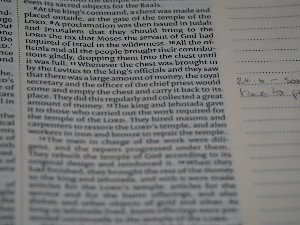Jerico Mathias, Rosamine Blessica
Hate Speech and the Freedom Discourse
Introduction
Hate speech and the freedom discourse. Explores hate speech in Indonesian new media during elections, its impact on youth (Gen Y/Z), and the interplay between free speech and Hate Speech & ITE laws.
Abstract
Hate speech accompanies intellectual freedom in new media. In the context of Indonesia, this phenomenon is very important during a political event such as legislative elections, presidential election, or elections of regional head. Since the 2014 presidential election, the term 'haters' was widely known, titled people with golden messages hateful to certain people or groups. Especially for netizens (youth users) - the Y and Z generation, the practice of communication with these hate messages should receive special attention. In addition to the heir of the nation, this is what coloring cyberspace now. They are native to the digital world (digital native). They are aware of the right to speak and express but understand that the online realm is the public domain inherent in normative responsibility. This paper reviews efforts to send hate messages through hate speech legislation (Hate Speech) laws and how ITE laws against hate speech acts.
Review
This paper tackles a highly relevant and timely subject: the complex interplay between hate speech and intellectual freedom in new media, specifically contextualized within Indonesia. The abstract effectively highlights the increasing prominence of online hate speech, particularly during significant political events like elections since 2014, and introduces the term 'haters' as a key phenomenon. By focusing on Generation Y and Z – the digital natives who are both aware of their right to speak and express, yet also understand the normative responsibilities of the online public domain – the paper targets a crucial demographic whose communication practices are central to shaping contemporary cyberspace. This establishes a compelling rationale for the study, positioning it at the nexus of technology, politics, and social behavior in a specific cultural context. The proposed methodology for addressing this issue involves a review of existing legal frameworks, specifically hate speech legislation and the Information and Electronic Transactions (ITE) Law in Indonesia, as they pertain to acts of hate speech. This legal-doctrinal approach suggests an examination of how current laws attempt to regulate and mitigate the spread of hateful messages online. Such an analysis holds significant practical value, potentially illuminating the strengths and shortcomings of current policy efforts to manage a pervasive problem. By focusing on the legal landscape, the paper aims to contribute to a deeper understanding of the regulatory challenges and opportunities in curbing online hate speech while ostensibly preserving freedom of expression. While the abstract clearly outlines the paper's scope and legal focus, a full manuscript would benefit from a more explicit articulation of its analytical depth. For instance, it would be valuable to understand whether the review of hate speech and ITE laws will include an assessment of their practical implementation, their constitutional implications, or their effectiveness in deterring hate speech without unduly impinging on free speech. Furthermore, given the title's reference to the 'freedom discourse,' clarifying the specific theoretical or philosophical angle taken on this discourse would strengthen the paper's academic contribution. Elucidating the precise nature of the 'golden messages hateful' and how they are legally defined or interpreted in the Indonesian context would also enhance the paper's specificity and impact.
Full Text
You need to be logged in to view the full text and Download file of this article - Hate Speech and the Freedom Discourse from Indonesia Media Law Review .
Login to View Full Text And DownloadComments
You need to be logged in to post a comment.
Top Blogs by Rating
Beyond the Forbidden: When His...
By Sciaria
The Spiritual Shelf Life: Navi...
By Sciaria
Unmasking the Macabre: The Dar...
By Sciaria
Favorite Blog
Beyond the Stereotype: Unpacki...
By Sciaria
The Invisible Architects: Are...
By Sciaria
Reclaim Your Day: Mastering th...
By Sciaria
Related Research
Entrée en guerre de l’empire ottoman aux côtés des puissances centrales (1914)
Le désir baroque du menteur de corneille
Conscience individuelle, interaction sociale et culture objective dans le roman l’herbe des nuits de patrick modiano : une étude de la micro-sociologie de georg simmel
Share
Notice Board
- THE LEGACY OF JOHN DUNMORE LANG (1799-1878)
- PENGARUH METODE PEMBELAJARAN PRAKTIKUM BERBANTUAN STEM TERHADAP KEMAMPUAN BERPIKIR KRITIS PESERTA DIDIK KELAS X PADA SUB BAB MATERI PERUBAHAN LINGKUNGAN DI SMA NEGERI DARUSSHOLAH SINGOJURUH TAHUN AJARAN 2024/2025
- GENIALLY BASED LEARNING MEDIA USING POSNER'S CONCEPTUAL CHANGE THEORY TO ADDRESS MISCONCEPTIONS ABOUT HEAT





